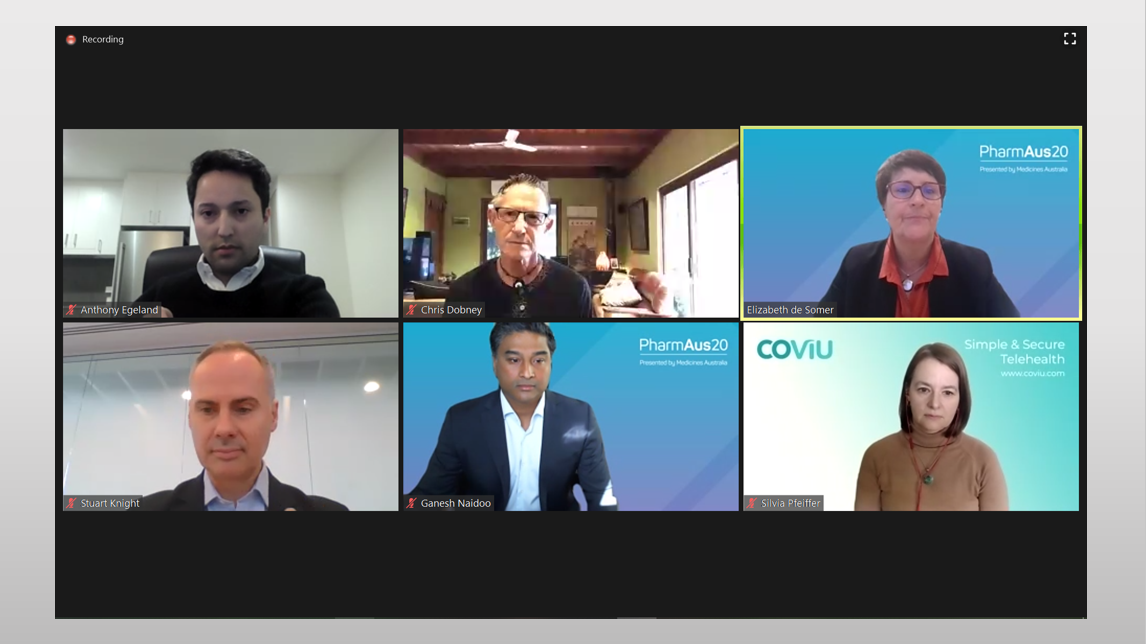News & Trends - Pharmaceuticals
Digital health transformation is essential but needs care – Medicines Australia

Pharma News: Leading digital experts at Medicines Australia’s PharmAus20 digital forum reiterated that while the digital revolution from COVID-19 has been embraced by many Australian patients, applying due care and consideration is essential in this new era.
PharmAus20’s session 3 was based on patient-centric healthcare and a focus on the delivery of new collaborations using data, telehealth, digital platforms and artificial intelligence (AI).
What we have experienced over the last few months of the COVID-19 pandemic is that healthcare systems need to be responsive to patients needs and they need to adapt quickly in a crisis. Australia needs to ensure that it can continue to deliver health services and bring medicines, treatments and medical devices to Australians quickly through research trials funding and through delivery of services in an appropriate and agile manner.
“It was a privilege to be joined today by leading digital experts and a clinical trial participant, who all reinforced the significant transformative steps already taken in health delivery and the substantial enthusiasm for the digital health revolution,” said Elizabeth de Somer, CEO of Medicines Australia.
“An appreciation of important areas we now need to acknowledge and address with digital health were also raised – not losing empathy with our interactions, maintaining a focus on outcomes, working with governments to build the structures but importantly involving all stakeholders, especially patients in this transformation,” she added.
Statistics from the commencement of lock-down show the dramatic shift to digital healthcare delivery. During April 2020, more than three million Australian patients received medical services through telehealth. In the last week of April alone more than 700,000 telehealth consultations were undertaken.
Speaking at the forum, Dr Ganesh Naidoo, CEO of Medmate, and GP, reiterated the COVID-19 thunderbolt required healthcare delivery to change overnight. While patients welcomed it, primary care is still grappling with the rapid adjustments.
“Patient centricity has changed rapidly. What we accepted previously is not the future. Patients love telehealth and appreciate interacting in their own environment. But it requires substantial adjustments for primary care who need to shift infrastructure from a face-to-face consult approach into digital delivery,” Dr Naidoo stated.
“We believe consumers are informed with their health and also empowered. They should now be able to access healthcare when and where they need it. They deserve an experience on the same level to other aspects of their daily lives,” he added.
Anthony Egeland, Consumers’ Health Forum, also reinforced how important the digital shift is for patients and the community.
“We know consumers want a simpler approach to their health to make their lives easy. They also want training and support for these new technologies,” added Mr Egeland.
“As we build the framework for the digital health eco-system, we must ensure consumers are actively involved, so human experience is retained. We must also ensure access to digital technology becomes a right and not a privilege,” he concluded.
While the acceleration curve in adoption of digital healthcare has been extreme, Dr Silvia Pfeiffer, CEO of Coviu reinforced the need for it to be implemented with care and in a considered way.
‘Quality of care is absolutely essential for digital delivery, and a firm focus on health outcomes must always be the highest priority,” she stated. “While we are one of the last industries to step firmly into the digital-age, it is important we do it carefully and slowly.
“Up until very recently, many Australians understandably relied on in-person consultations; they’re familiar to us. This is changing rapidly. There are many circumstances where telehealth is a safer, more efficient and cost effective replacement. For example, in instances where people who live in rural and regional areas require access to healthcare, as well the elderly or those who are more vulnerable, and in mental health consultations, to name a few.
“We believe we have the potential to digitise up to 80% of consultations across the board. But relationships in healthcare remain critical and the best way to maintain these, and to deliver the best possible patient outcomes, is via video consultations. Video consultations are the real transformative step in healthcare, and in many cases will act as a suitable replacement for in person visits,” concluded Ms Pfeiffer.
Chris Dobney, clinical trial participant, reminded us how overwhelming the patient journey becomes when navigating the healthcare system. He shared his experiences securing access to a clinical trial as COVID-19 struck “The care and support I received from the research team and clinicians was incredible. The disconnect however between states with the exchange of information and quality of care is an area that needs greater attention and focus for trial patients,” he said.
“COVID-19 has generated a laser-like focus on the needs of patients. While the digital disruption in healthcare delivery requires time to refine and fully implement, the changes will ultimately be of great benefit to patients, their families and carers. It’s exciting to see this taking place during such difficult times, and we can anticipate the rewards will be significant,” concluded Stuart Knight, General Manager, Roche Australia and Chair of PharmAus20 session three.
News & Trends - Biotechnology

Aussie biotech secures agreement with UQ and USyd to advance cardiovascular diseases research
Biotech News: Australian biotechnology company, Cartherics, developing immune cell therapies for the treatment of cancer, has entered into a Technology […]
MoreNews & Trends - MedTech & Diagnostics

NSW Health Secretary urges more focus on patient experience, drawing from her own heart valve disease journey
In a heart-warming event that united patients, their loved ones, representatives from patient organisations and employees, Edwards Lifesciences hosted its […]
MoreHuman Resources

‘To be an inclusive society, we need an embedded national strategy to combat systemic racism’, says Commissioner Sivaraman
Race Discrimination Commissioner Giridharan Sivaraman has welcomed the release of the Multicultural Framework Review by the Federal Government, calling it […]
MoreNews & Trends - Pharmaceuticals

Shingles vaccine lowers risk of dementia
Pharma News: A recombinant shingles vaccine which was added to Australia’s National Immunisation Program (NIP) in November last year, is […]
More